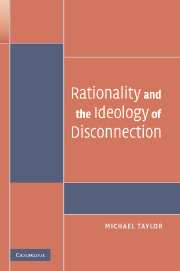Preface
Published online by Cambridge University Press: 12 January 2010
Summary
I intend this book as a contribution to the overthrow of a radically reductive and dehumanizing but deeply entrenched way of thinking. It is entrenched most completely in the discipline of economics – it is part of what defines neoclassical economics – and because of this has come to have enormous influence on how public policies of all kinds are made, and in this way affects all our lives, especially here in the United States. It has also made roads into the thinking of people in a variety of other academic disciplines, especially political science, where it has, for example, largely framed the discussion of when and why people are disposed to do their part in promoting common interests – a subject that is of fundamental importance in the study of politics because a great deal of governmental and other political activity and organization would not be necessary if most people were generally willing to do their part in advancing shared interests, and because, at the same time, democratic governance would not work well if most people were not generally prepared, without being coerced, to do their part in certain cooperative endeavors. Some environmentalists, too, among them even some well-known biologists, have fallen under the sway of the economists' version of this way of thinking, or at least have become willing to make selective use of it when they believe it will serve their purposes in the short run: they say, for example, that we should preserve biodiversity because it pays to, and in general to save the environment we must appeal to the businessperson's bottom line and the consumer's famous pocketbook.
- Type
- Chapter
- Information
- Rationality and the Ideology of Disconnection , pp. ix - xviiiPublisher: Cambridge University PressPrint publication year: 2006

